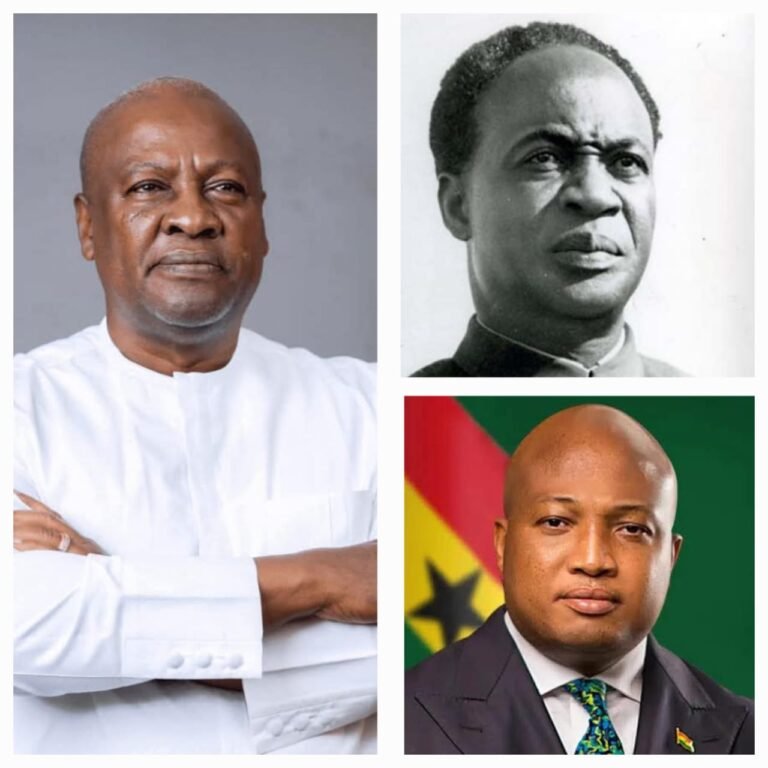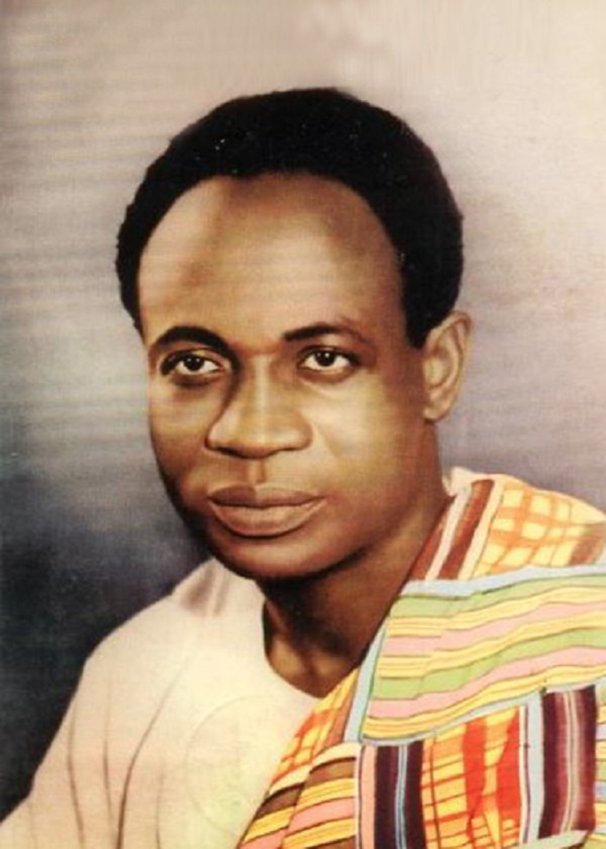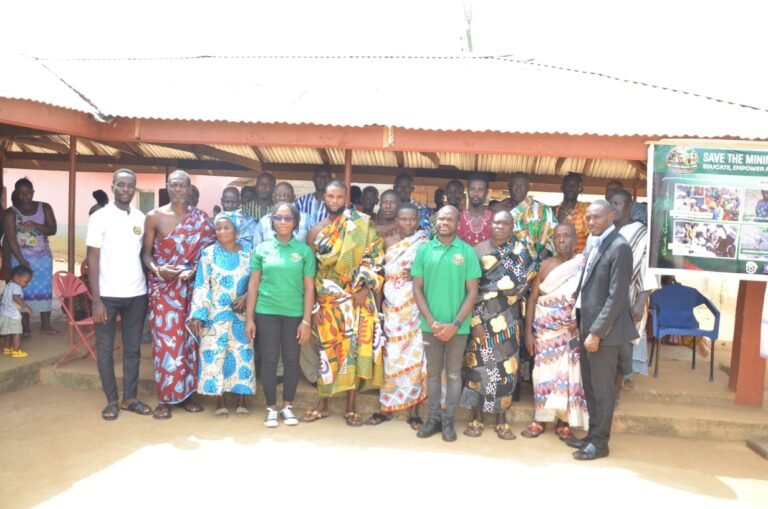
Ambrose Entsiwah Jnr., acting NSS Corporate Affairs Director
 Exactly fifty years ago today, on 7th September, 1973, the then Head of State of Ghana and Chairman of the National Redemption Council (NRC), General (now late) I.K. Acheampong, signed NRC Decree 208 to establish the Ghana National Service Scheme. Hurray!!! to our beautiful Golden Jubilee.
Exactly fifty years ago today, on 7th September, 1973, the then Head of State of Ghana and Chairman of the National Redemption Council (NRC), General (now late) I.K. Acheampong, signed NRC Decree 208 to establish the Ghana National Service Scheme. Hurray!!! to our beautiful Golden Jubilee.
The NRCD 208 charged the Scheme to engage Ghanaian graduates from the then only three universities in Ghana – University of Ghana (UG), University of Cape Coast (UCC), and University of Science and Technology (UST) – to offer two years of mandatory national service, including a minimum of six months military training.
The Scheme was established as a formal institution to provide structured service roles and direction for the country’s young graduates from our tertiary institutions of learning, at a time the country’s economy experienced steady deterioration and stagnation. There was therefore widespread clamor by the youth, especially the university students, for recognition of their definite role in the national development efforts. They needed to have well defined roles, duties and responsibilities towards the state; and so, the commitment to serve one’s country was high.
The Scheme has become a development and skill training or learning organization offering re-orientation on national issues to the participants as well as on the job training for the country’s educated youth.
In these fifty years of national service, many young Ghanaians have made various sacrifices in the name of service the country. Many are those who have also lost their lives through their national service. That is why we have dedicated today as Remembrance Day for all our fallen heroes, and it is being marked with a press briefing and a Flag-Raising Ceremony at the forecourt of the National Service Secretariat Head Quarters in Accra.
The Scheme’s policies and interventions are designed to focus on harnessing university graduates’ knowledge and skills to contribute to national development and at the same time deliver services to the young people themselves. The central theme of the Ghana National Service Scheme is giving young people opportunities to become involved in nation-building.
Today, the Scheme has gone into partnerships with various user agencies and institutions aimed at achieving its new focus of “Deployment for Employment”.
Mandate of the Ghana National Service Scheme:
Under the mandate of the Ghana National Service Scheme, Ghanaian citizens of 18 years and above, especially newly qualified University graduates and diplomats, are to be mobilized and deployed, to be engaged full time, in any of the following fields for a one year mandatory National Service: – Agriculture, Co-operatives, Education, Health, Local Government, Military, Rural Development – including Surveying, Physical Planning, Civil Engineering and Rural Industries, Youth programmes, and any other field that the National Service Board may prescribe from time to time.
Core objectives
The Scheme also has the following as its core objectives:
- Encourage the spirit of national service among all segments of the Ghanaian society towards nation-building.
- Undertake projects designed to combat hunger, illiteracy, disease and unemployment in Ghana.
- Help provide essential services and amenities, particularly in towns and villages of the rural areas of Ghana.
- Develop skilled manpower through practical training.
- Promote national unity and strengthen the bond of common citizenship among Ghanaians.
Functions of the Scheme
The functions of the Scheme are straight forward. They include the following:
- Mobilize, Recruit, Train and Deploy national service personnel on national development priority programmes.
- Identify public sector institutions with weak human resource capacity and strengthen them to deliver essential services for national development.
- Based upon request submitted by organisations and institutions, the Scheme carries out deployment of service personnel according to skill set and job positions.
- Provide feedback to training institutions on relevance of various careers or courses to the labour market. This will help them to tailor curriculum to the needs and demands of the labour market.
- Enter into direct change-agent relationship with deprived rural and sub-urban communities to facilitate the provision of basic social infrastructure services.
- Introduce the young graduate to the work culture and equip them with skills that will propel them onto the job market.
Achievements
The Scheme over the years has chalked some successes. These include:
- The sustenance of the youth commitment to the programme has been achieved by sensitization of students through on campus orientations.
- Currently deployment is expanded to support the country’s development policy initiatives and critical areas include, education, health, public sector ministries, departments and good governance and private sector development including oil and gas, and mines and energy.
- An experiential education programme for young people. National service programmes provide a transitional year or phase which gives the young graduates access and exposure to the experience of work, and which assists them in making the transition from study to job market.
- The experience acquired in a service programme can increase participants’ eligibility for the jobs which do exist.
- A method of fostering national development. A tool that enables government to meet the country’s social service obligations and achieve the development goals by drawing on the skills, energies and resources of young people.
- National service programme builds a concept of nationhood which overcomes ethnic, geographic or cultural differences and fosters national cohesion. National Service therefore gives young people opportunities to become involved in nation-building.
- By investing their time, skills, and passion, service personnel play an important role in nurturing their communities’ well-being. The programs also address needs that cannot otherwise be met, due to a lack of human and material resources.
- Building the spirit of voluntarism: service programmes offer the young graduates the opportunity of building a culture of service and voluntarism with their communities.
- Young university graduates through national service have gained some military training and skills for physical, psychological and mental health and fitness.
- The objectives of the Scheme in setting up farm projects and other units were;
- To create and develop the farms and Units to become learning centres where National Service Persons, Volunteers and the youth at large would acquire livelihood employable skills and modern practices in mechanized farming.
- To produce food to combat hunger and its associated problems of malnutrition and disease.
- To supplement shortfalls in budgetary allocations to the scheme through incomes generated from the projects. .
- National Service Personnel and Volunteers who demonstrate high interest in farming as a career would be supported to acquire further entrepreneurial skills to establish their own farms.
In the light of the above, the Scheme, after the success in the pilot phase in Ejura in the Ashanti Region in 2010, expanded the projects to cover Anyaboni in the Eastern Region, Dawenya/Adjei-Kojo in Greater Accra, Branam/Wenchi in Brong-Ahafo and Komenda, Awutu/Effutu in the Central Regions, and Abutia Kpota in the Volta Region. The Scheme’s biggest farm project is currently at Kumawu in the Ashanti Region.
Urban Traffic Module
The National Service Scheme introduced a new module – Urban Traffic Management to which a number of national service personnel have been deployed. The Urban Traffic Management is aimed at training and equipping national service personnel to support the Motor Traffic and Transport Unit (MTTU) of the Ghana Police Service in managing and controlling traffic in the urban cities. A total of one thousand national service personnel were deployed into this area. These were made up of six hundred to Accra while four hundred were deployed to Kumasi.
On Friday, August 21, 2015, the first batch of 210 national service personnel deployed into Accra after two weeks of intensive training under direct supervision of trained and professional police officers of the Motor Traffic and Transport Department (MTTD) to manage the increasing heavy traffic flows on our roads in the urban areas. The module is still on ad has received wide commendations.
Call center
The Scheme has a Call Centre established at the head office in Accra to offer national service personnel the opportunity to be more interactive; and also to quickly get responses to issues bothering them, such as posting challenges, payment of allowances, and general welfare.
The centre is manned by trained national service personnel who are at the service of national service personnel and the general public from 7.00 a.m. to 7.00 p.m. The numbers to the call centre are as follows: 0299370117; 0299370118; 0299370119; 0299370105; 0299370203.
Today, in almost every home in Ghana, someone has done national service. Many of these young graduates did their national service in joy. That is why the saying by an American writer and novelist, Pearl Buck, that, “the secret of joy in work is contained in one word – excellence. To know how to do something well is to enjoy it”, is relevant for all who have gone through national service at one time or another.
The call on the youth of Ghana to serve their country has never been lost on the minds of our leaders. The country’s first President, Osagyefo Dr. Kwame Nkrumah had much confidence in the youth and anchored his political feats on the effective organization of the youth who were ever ready to serve the country even at the peril of their lives.
The philosophy in establishing the Ghana National Service Scheme was to call on the youth of Ghana to offer between one and two years of their time after tertiary education to work, especially in deprived and rural communities, to provide shelter, food, water and hope to the majority poor who also lack education and many other social amenities.
For over fifty years, the educated youth have contributed in diverse ways through national service towards the development of the country. Today, we continue to call on the youth who are obliged to offer one year national service to consider national service as a call to national duty.
So, Arise, Ghana Youth for your country, for, your nation demands your devotion. Let us all unite to uphold her, and make her great and strong. Indeed, we are all involved in building our motherland.
The writer is the Ag. Director, Corporate Affairs, and the substantive Volta Regional Director of the Ghana National Service Scheme. ambrose.entsiwah@nss.gov.gh








